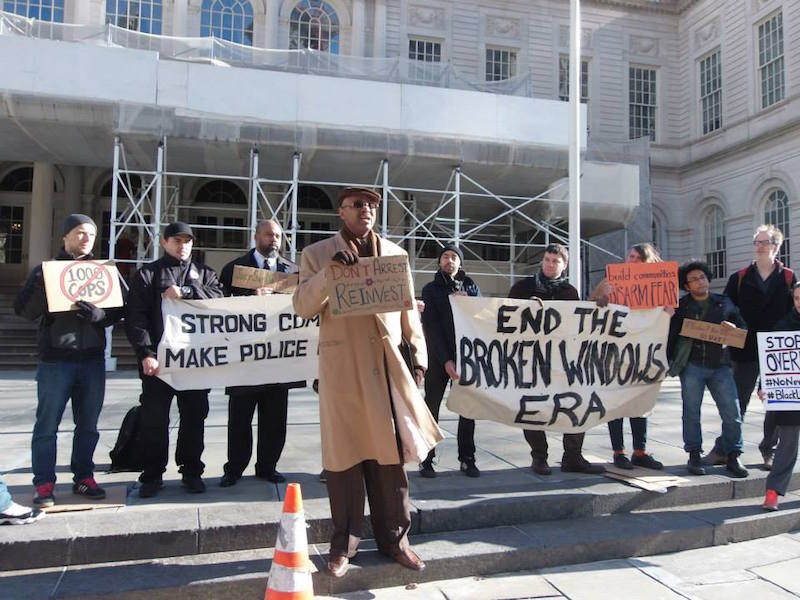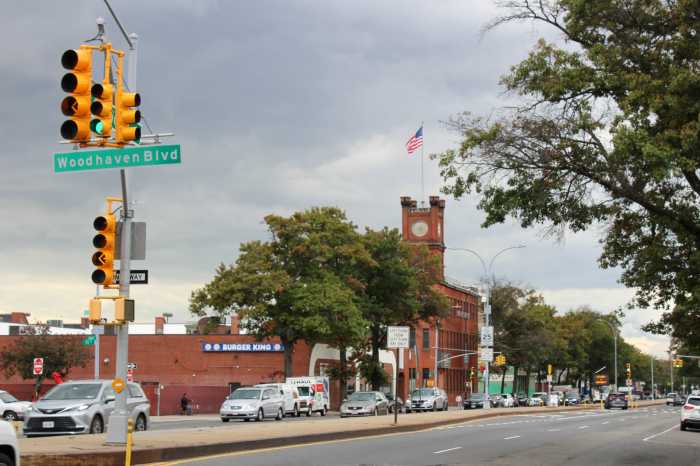Brooklyn’s lawmakers struck some caution in this week’s passage of the Criminal Justice Reform Act, but generally thought that after much consideration and negotiation the measure was warranted.
The package of eight bills relaxes and re-codifies low-level quality-of-life offenses like public urination and drinking from criminal to civil offenses while giving police discretion on making arrests if necessary.
As a result, the City Council estimates that more than 100,000 people – many of which are people of color – will receive civil summonses instead of criminal penalties. According to City Council data, 9,036 people were convicted of misdemeanors and given a permanent record in 2014 for violations such as disobeying a sign in a park.

“Dating back to my days in the New York City Police Department, I have been an ardent supporter of ‘broken windows’ policing. I understand, better than most, how quality-of-life disturbances are a real concern for New Yorkers. At the same time, I have been firm in my belief that our approach has been well-intentioned but significantly damaging for thousands of our residents, particularly young people of color. It is a matter of justice and of public safety when the punishment does not meet the offense, and far too many who have failed to pay a summons — for a variety of reasons — have suffered an arrest, permanent criminal record, and the start of serious repercussions that can damage their personal and professional lives forever,” said Brooklyn Borough President Eric Adams.
“The Criminal Justice Reform Act is an important package of legislation to better right-size the penalties for low-level, non-violent offenses, and the City Council should be applauded for their commitment to thoughtful debate and decisive action on these measures,” he added.

Bay Ridge City Councilman Vincent Gentile said he had serious reservations about this particular package of bills, and was especially concerned regarding what he first perceived to be a threat of degradation of quality of life.
“However, after due examination, much discussion, and careful consideration, I have found that this package sensibly and reasonably codifies the penalties for many of these quality of life offenses and still will not prevent the NYPD and the courts from enforcing penalties as necessary,” Gentile said.
City Council Member Jumaane Williams (Flatbush, East Flatbush, Midwood) said it is obvious to all conscientious people that the criminal justice system has had a disproportionately negative affect on Black, Brown and poor communities. This unequal enforcement of law and practices that happen in communities of more color has had lasting intergenerational effects on families and neighborhoods, systematically destroying the futures of so many, he said.

“The Criminal Justice Reform Act is a common sense approach at reexamining this system so that it is applied more justly, without putting the public in harm’s way. Too often our young men and women are unable to find employment, or secure housing or government assistance because of minor infractions. Allowing an option for civil penalties for low-level, nonviolent offenses will go a long way in at least giving all New Yorkers a chance to have a bright future,” he said.
City Council Member Mark Treyger (Coney Island, Bensonhurst, Gravesend) said to be perfectly blunt he would not have supported the measure without the changes insisted on by Commissioner Bratton that gave police discretion to make arrests.

“In my conversations with commanding officers from precincts in my district, they all felt more comfortable with this once the bill was amended based on the Commissioner’s insistence. The NYPD stands behind the bill because they will decide, rather than politicians, what summonses to issue when it comes to these low-level non-violent offenses,” said Treyger.
“Make no mistake; it is still against the law to publicly urinate. A cop can still issue a criminal summons. It is at their discretion, not anyone else’s. The Police Department has been given greater flexibility, but it is still against the law to commit these offenses. At the same time, we need to ask ourselves: is it right that a person who steps on freshly planted grass in a park should end up spending time at Rikers Island? I have confidence in Commissioner Bratton and his statement that this will not undermine his department’s ability to keep us safe and deal with quality of life issues on a day to day basis,” he added.










